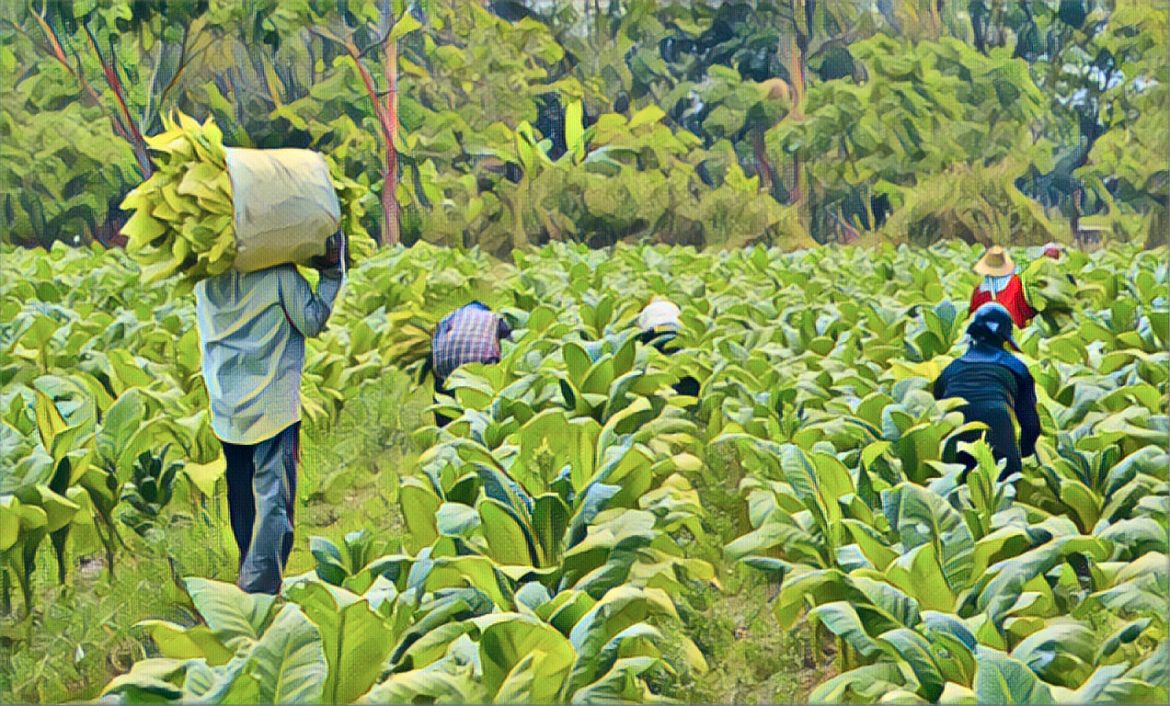Zimbabwe’s tobacco farmers, who produce the country’s largest foreign currency earner, are facing a crisis as they struggle to access funds to finance their operations. According to the Tobacco Industry and Marketing Board (TIMB), about 92 per cent of the registered growers this season have opted for contract farming, a system where they receive inputs and loans from merchants in exchange for selling their crops to them at predetermined prices.
The contract system has been growing in popularity in recent years, as most farmers, especially those who benefited from the land reform programme, lack collateral to obtain loans from the banks. However, some farmers and associations have raised concerns over the potential collapse of the auction system, which used to be the marketing model of tobacco in the world and which determines the minimum grade prices for contract sales.
They fear that the dominance of contractors could lead to price manipulation and exploitation of farmers, who are the primary producers of the “golden leaf”. They have appealed to the government to intervene and protect the farmers’ interests, as well as to revive the auction system by providing affordable and accessible financing options.
The government has acknowledged the challenges faced by the tobacco farmers and has offered support through the Agricultural Finance Corporation (AFC), a state-owned entity that provides loans to farmers. The AFC has set aside US$70 million for the 2023 tobacco season, which is expected to run until August. The government has also implemented a Tobacco Value Chain Transformation Plan, which seeks to increase tobacco output to 300 million kg by 2025, enhance value addition and beneficiation, and grow the industry to US$5 billion by 2025.
Zimbabwe is one of the world’s top tobacco producers, with China being the main buyer of its crop. Tobacco contributes nearly US$1 billion to the country’s export earnings every year and employs a large number of the rural population. More than 70 per cent of the tobacco is produced by small-scale farmers, who have improved their livelihoods through growing the crop.
Despite the challenges, the TIMB has reported that the tobacco output this year has surpassed the target of 230 million kg, reaching 231,5 million kg by Tuesday this week. This is a 56 per cent increase from last year’s total of 148,5 million kg. The total value of the tobacco sold this year is US$696,7 million, up from US$445,4 million last year, averaging US$3,01 per kg.
The TIMB has also noted a significant increase in the volumes sold through the auction system, which registered a growth of nearly 80 per cent from last season. The average price at the auction floor on Tuesday was US$3,15 per kg, while the average price at the contract floor was US$2,98 per kg.
The TIMB acting chief executive Mr Emmanuel Matsvaire said the growth in auction volumes was a positive sign that the auction system could be sustained. He also attributed the increase in tobacco output to favourable weather conditions and timely delivery of inputs by the contractors.
Zimbabwe’s tobacco industry has shown resilience and optimism amid the economic difficulties and the Covid-19 pandemic. The industry players have expressed hope that the sector will continue to grow and contribute to the country’s development and recovery.
Source: The Herald


